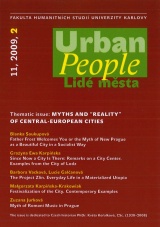Květa Kořalková
May 30, 1930 – December 24, 2008
DOI:
https://doi.org/10.14712/12128112.3653Abstract
The historic work of Květa Kořalková was influenced by her family origin in a workers’ environment in Northern Bohemia. Experiences from her childhood in a family of an often-unemployed worker where the basic livelihood was provided by her mother, a factory worker, are projected – along with in-depth excerpts from archival and printed sources – in her first book Hnutí nezaměstnaných v Československu v letech 1929–1933 [Movement of Unemployed in Czechoslovakia in the Years 1929 to 1933] (Prague: Práce 1962). After the end of her university studies in 1954 she took active part as an assistant in the Philosophical Faculty of Charles University in Prague in research of the way of life and public activities of miners in Northwestern Bohemia. Her lectures on the social and political development of Central European countries of the Soviet bloc after World War II, included in the program of the Faculty in the fall semester of 1956, earned unexpected relevance as a consequence of the political shake-up in Poland (May 1956) and in Hungary (October 1956), so many times more students than were enrolled attended her lectures.
Downloads
Published
How to Cite
Issue
Section
License

This work is licensed under a Creative Commons Attribution-NonCommercial-NoDerivatives 4.0 International License.



